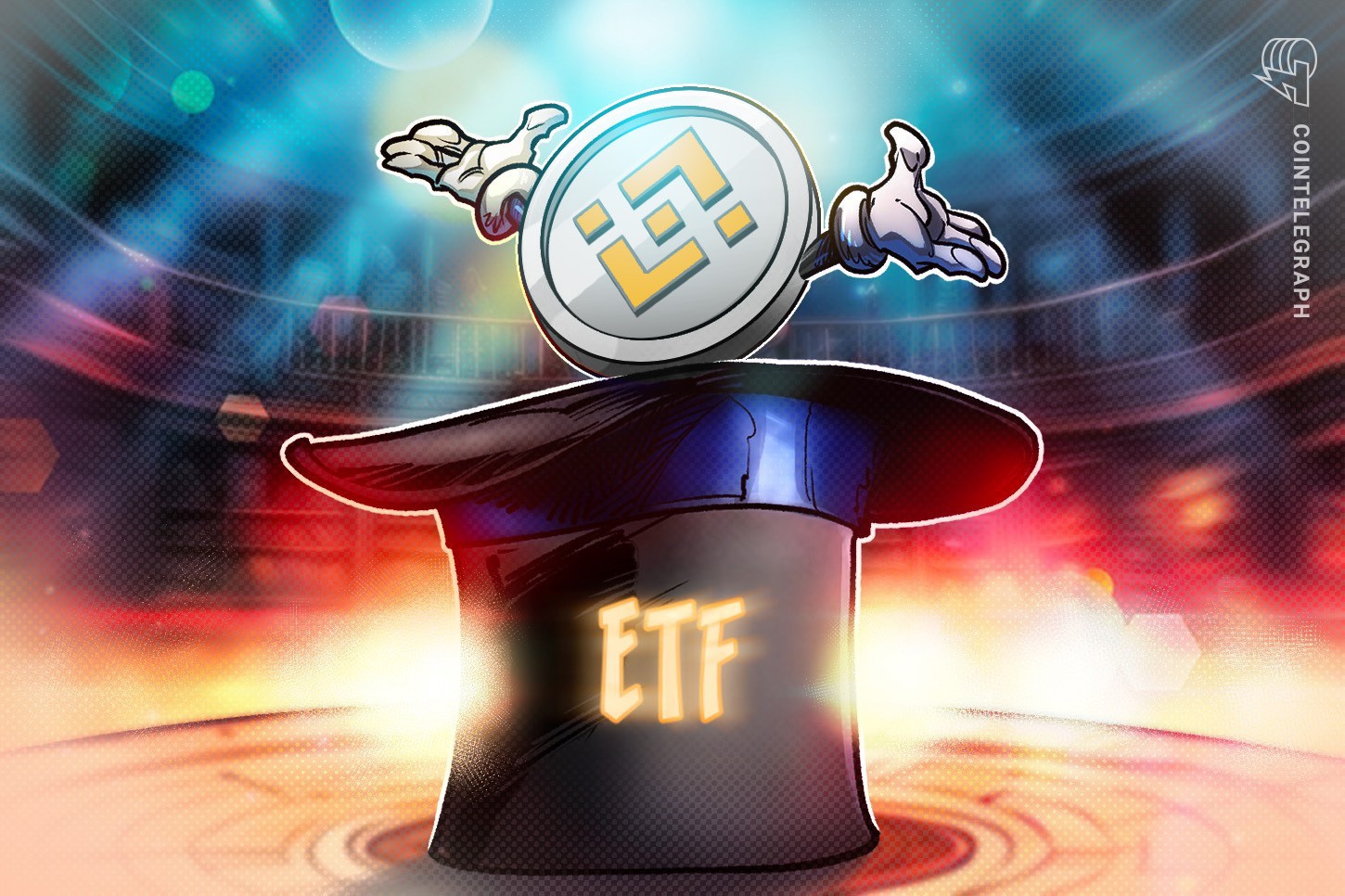Asset manager VanEck backed away from its earlier plans to stake assets in its proposed spot BNB exchange-traded fund, despite offering staking in its recently launched Solana product.
In its updated S-1 filing to the US Securities and Exchange Commission (SEC) on Friday, VanEck said “the Trust will not employ its BNB in Staking Activities and accordingly will not earn any form of staking rewards or income of any kind from Staking Activities” at the time of listing. The filing further warns that “there can be no assurance that the Trust will engage in any Staking Activities” in the future, either.
The company acknowledged that avoiding staking could cause the ETF’s performance to lag that of holding BNB (BNB) directly, noting that investors would forgo potential staking rewards.
This follows VanEck filing for a spot BNB exchange-traded fund (ETF) in May. The filing noted at the time that it “may, from time to time, stake a portion of the assets through one or more trusted staking providers.” Earlier this month, VanEck also launched the US’s third Solana (SOL) ETF, offering staking yields.
Related: Solana staking ETFs are ‘missing part of puzzle’: Bitwise CIO
VanEck hints at BNB’s regulatory woes
In its updated filing, VanEck distanced itself from any potential staking efforts and stated that it would be implemented through one or more third-party “Staking Services Providers.” Furthermore, the company clearly stated that there was no guarantee that any staking with ETF assets would ever take place, and if they were to engage in such activity, they would first file a prospectus with the SEC.
“The Trust is not permitted to engage in Staking Activities, which could negatively affect the value of the Shares.”
Still, the filing fails to clearly state the rationale for its cautious approach to BNB staking, but it hints at concerns regarding regulatory troubles. A section of the filing clearly states that a determination by the SEC that BNB is a security may adversely affect the value of the shares and the termination of the trust.
“The test for determining whether a particular digital asset is a ‘security’ is complex and difficult to apply, and the outcome is difficult to predict,” VanEck said. The fund manager “acknowledges that BNB may currently be a security, based on the facts as they exist today, or may in the future be found by the SEC or a federal court to be a security.”
In such a case, VanEck may dissolve the ETF — either of its own volition by autonomously determining that BNB is a security or after the SEC or a federal court concludes that it is. “For so long as the Sponsor believes there to be good faith grounds to conclude that the Trust’s BNB is not a security, the Sponsor does not intend to dissolve the Trust on the basis that BNB could at some future point be determined to be a security,” the filing said.
Related: Grayscale debuts Solana ETF, joining Bitwise in SOL staking ETF race
BNB’s past brushes with the SEC
As VanEck pointed out, in 2023, the SEC filed lawsuits against crypto exchange Binance, its US-based competitor, Coinbase, and Kraken for facilitating the trading of unregistered securities. The regulator deemed 68 digital assets to be securities at the time, including BNB. Still, in early July last year, a US federal court found that secondary sales of the BNB token did not constitute security transactions.
Whether staking and cryptocurrencies that employ it fall under securities law has been subject to intense debate. Back in late May, the SEC’s Division of Corporation Finance said in a statement that “Protocol Staking Activities” such as crypto staked in a proof-of-stake blockchain, “don’t need to register with the Commission transactions under the Securities Act,” or fall within “one of the Securities Act’s exemptions from registration.”
Still, this did not settle the debate. At the time, Caroline Crenshaw was the sole commissioner who opposed the guidance, saying it “fails to deliver a reliable roadmap for determining whether a staking service” is an investment contract under securities laws.
Magazine: Ethereum’s Fusaka fork explained for dummies: What the hell is PeerDAS?


